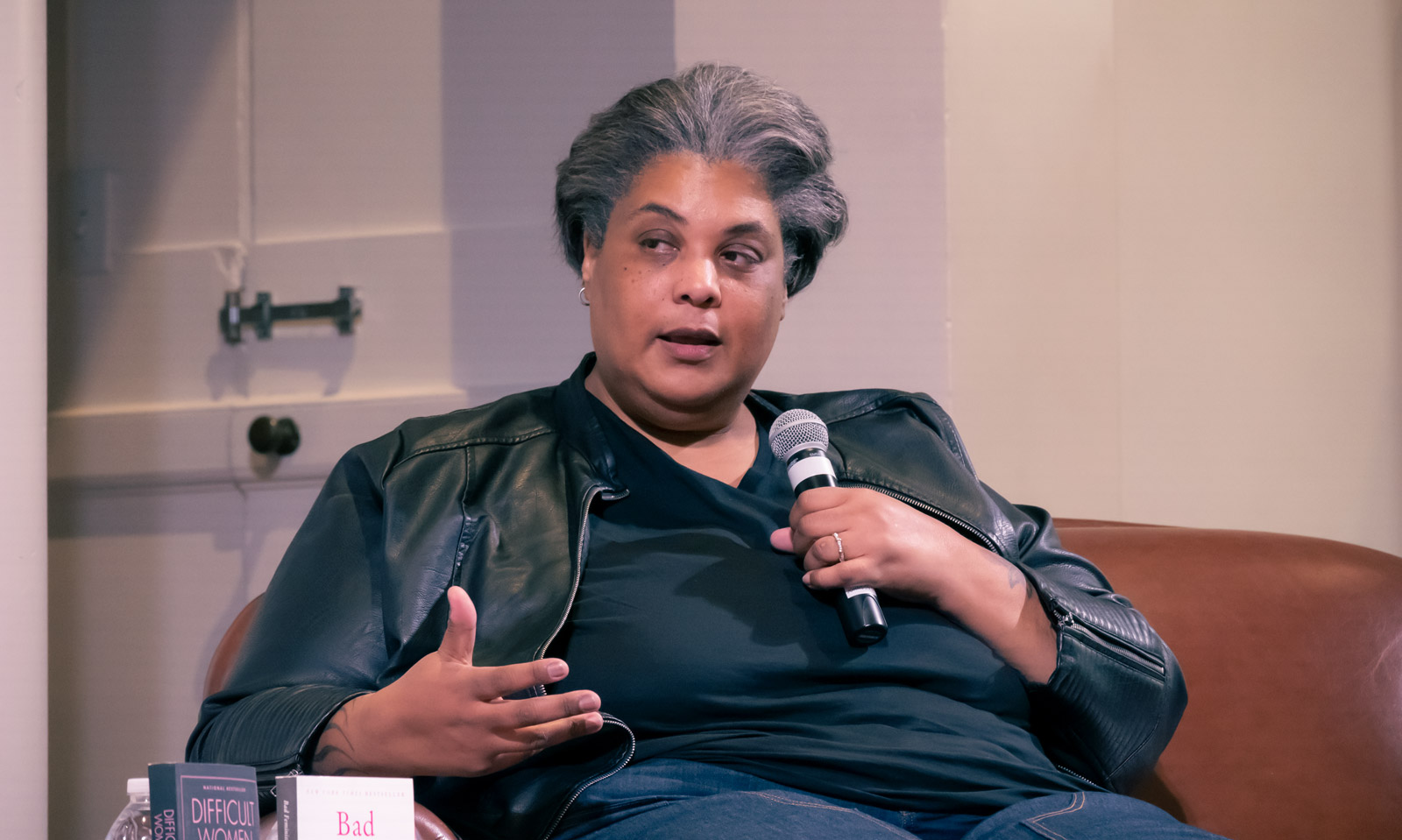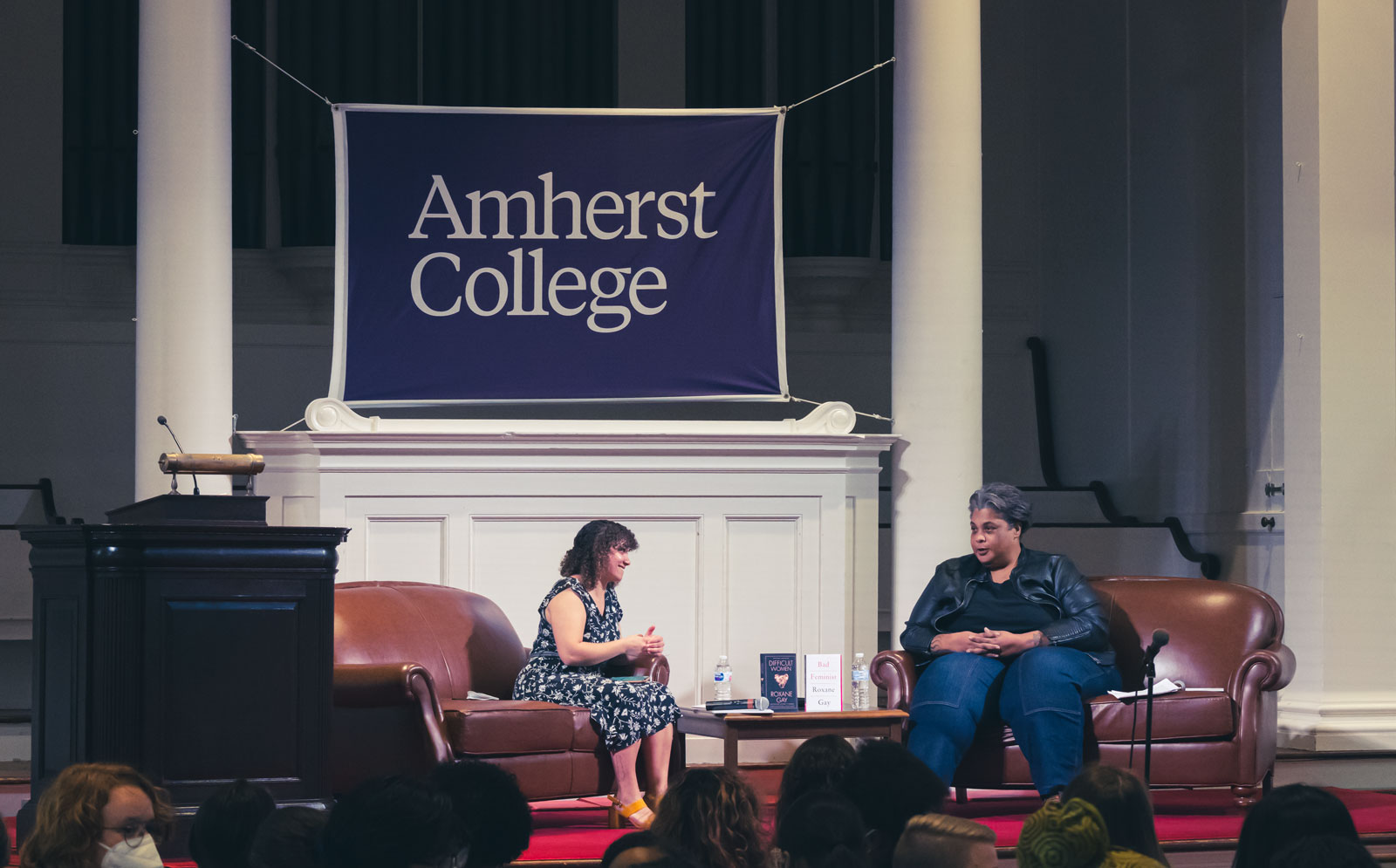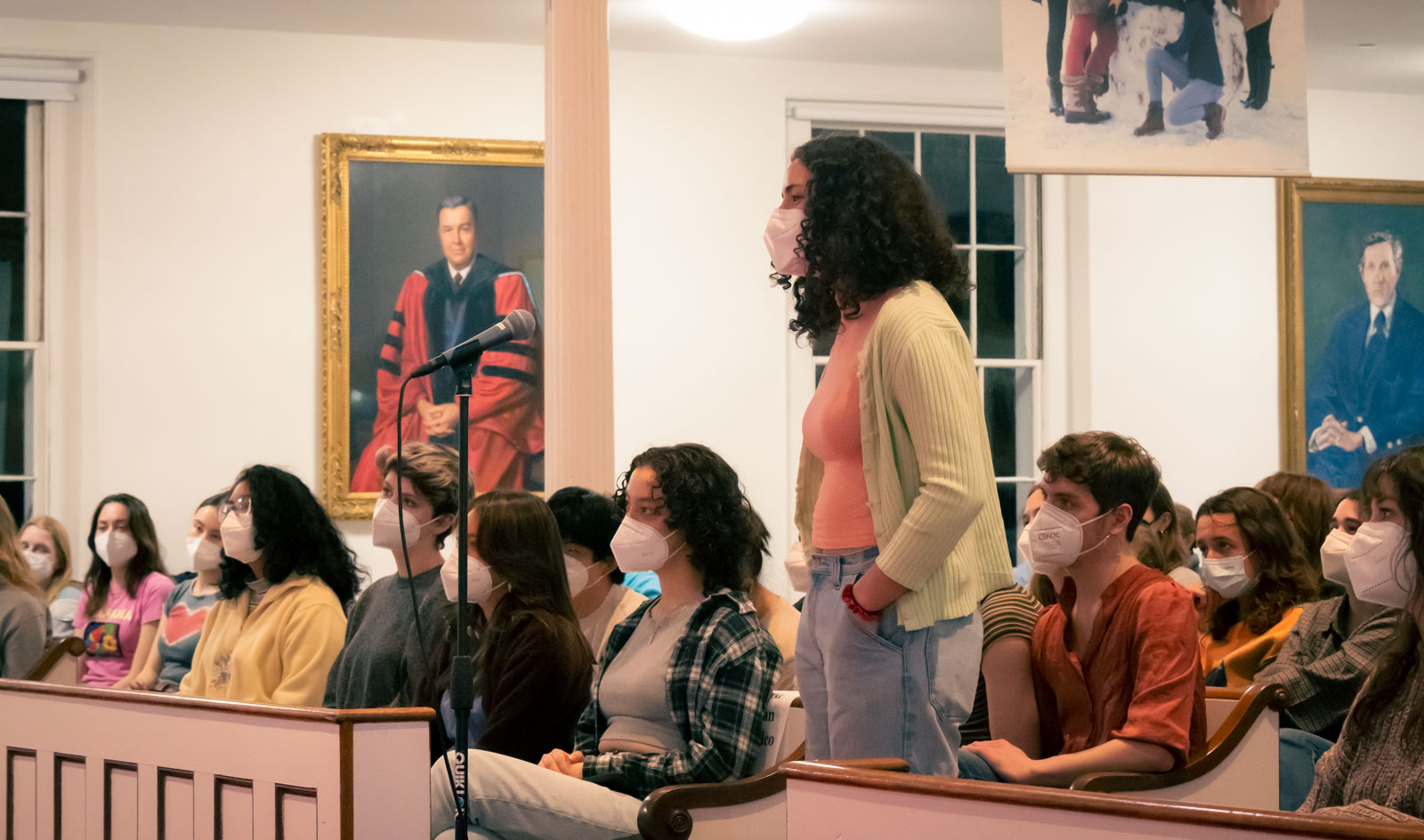
Dr. Roxane Gay, cultural critic and author of Bad Feminist, Not That Bad and Hunger: A Memoir of (My) Body, spoke in Johnson Chapel.
“First, I’m going to tell you about my puppy,” Roxane Gay said to the audience in Johnson Chapel on March 25. She read from the food log she had kept for days, at the veterinarian’s request, for her tiny dog, Maximus Toretto Blueberry. The entries detailed how Max had been eating, or refusing to eat, everything from expensive Kobe beef and chicken hearts to discarded newspaper and kitty litter.
It was a light and funny opener to Gay’s visit as keynote speaker for Women’s History Month—and her wit is one reason the Women’s and Gender Center (WGC) was thrilled to welcome the bestselling author to Amherst. But as the evening went on, more serious topics came up, as when Gay mentioned her 2011 essay “The Careless Language of Sexual Violence,” her first foray into the cultural criticism for which she is now renowned.

Women’s and Gender Center director Hayley Georgia Nicholas (left) introduced Dr. Gay and facilitated the conversation.
In many instances, Gay’s writing blends the serious and the humorous. After reading her scathing assessment of the recent standup comedy of Dave Chappelle (“five or six lucid moments of brilliance, surrounded by a joyless tirade of incoherent and seething rage, misogyny, homophobia and transphobia”), she told the Johnson Chapel crowd, “I always think it’s important that we hold the people we admire to high standards.” She went on to read “The Pleasure of Clapping Back,” in which she describes how she relishes having “nemeses—people who have slighted me in ways both real and imagined who are now mortal adversaries I must defeat” (though “these people largely have no idea I exist”), as well as how she responds to harassment from online trolls.

Following the readings, Gay answered a wide range of questions from the Amherst community. WGC director Hayley Georgia Nicholas asked Gay to name a favorite book that she returns to again and again (The Age of Innocence, by Edith Wharton); an audience member inquired about Gay’s teaching at Occidental College (“I believe that every student who walks into my class is a great writer,” she answered); another sought her insight into writing about trauma, as she had in her 2017 book Hunger: A Memoir of (My) Body. And what, in Gay’s opinion, is currently the most urgent issue for feminist activists? The undermining of Roe v. Wade and the proliferation of “anti-freedom legislation from people who are always crying about freedom,” she argued, adding that parental leave, the wage gap and disability access are also urgent.
Humor infused the Q&A session as well. “What is your opinion of heterosexual marriage?” a student asked. Gay, who is married to a woman, offered a salute “to all the soldiers who are willing to take that on.” After the laugh, she clarified that what’s most important to her about any marriage is the balance of power and sharing of household responsibilities. “Really, I just want equality for everyone.”
At that, an audience member piped up with a key question about the division of labor between Gay and her wife: “Who feeds Max?”